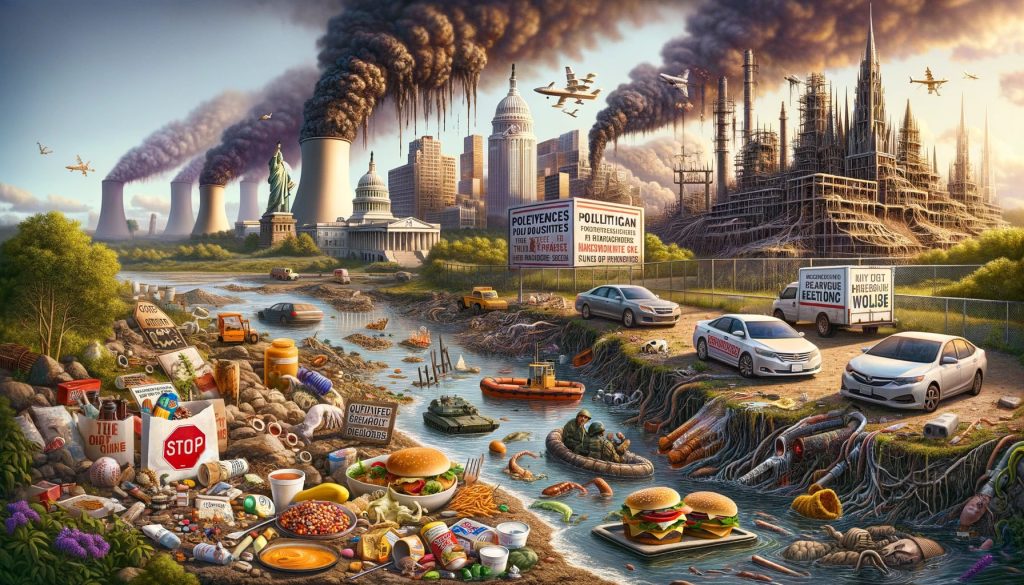Porn Disrupts Sexual Repression, Promotes Ethical Autonomy
 I recently wrote about the role of sexual repression as a societal control mechanism that benefits only the winners of the status quo while harming society at large. The adult industry can be seen as a form of push-back against these forces, one that, at its best, advocates for personal freedom and individual responsibility, and also promotes internal harmony by attempting to de-stigmatize the ethical exploration and enjoyment of sexuality in its many forms.
I recently wrote about the role of sexual repression as a societal control mechanism that benefits only the winners of the status quo while harming society at large. The adult industry can be seen as a form of push-back against these forces, one that, at its best, advocates for personal freedom and individual responsibility, and also promotes internal harmony by attempting to de-stigmatize the ethical exploration and enjoyment of sexuality in its many forms.
It’s fair to assume that no politician will take to the microphone to defend the adult industry’s positive impact on society. Sexual repression is so ingrained in our culture that even suggesting such a thing is possible would be met almost exclusively with snorts and eye-rolls, incredulity and sarcastic quips. The media, our politicians and our religious figures have normalized the idea that the adult industry is just harmful; they often raise awareness only of edge cases that present the industry in a negative light – an approach that aligns well with the misconceptions their audiences have been pre-programmed to believe.
Religion and Repression
From a young age, we are taught (indoctrinated?) that religion holds the moral high ground, and that its principles guide ethical behavior in human societies. In reality, most religions have an unhealthy interest in perpetuating sexual repression, which damages the mental health of their followers and leads to unsatisfying and even toxic lives. These religions, however, have done such a good job convincing the population of their moral purity that when they stand against the adult industry – which is a threat to sexual repression – it’s taken for granted by most that our business is inherently harmful.
This is what we’re up against when we ask society to re-consider the impact of our work, and to look at what we do in its entirety, instead of simply through the narrow views of those who find us threatening.
No Industry is Harmless
Let’s be clear: there is no industry in America that doesn’t cause harm on some level, and that includes ours. I’d argue that organized religion is an industry, and one that has caused more harm throughout human history than any other. The good that the defense industry does in protecting its citizens from foreign invasion is countered by the misery it causes when it’s flipped for conquest purposes. Tech is clearly a double-edged sword, and as much as I love its benefits, I could write a volume of books about technology’s harmful side. Energy production is vital for modern society to function, and yet also it’s causing massive damage to the planet, damage that’s now primed to unleash massive waves of suffering and death through global warming; to say nothing of the harm practices like mining coal have done to its workers. The pharmaceutical industry has done a lot of good; also, its products have been linked to so many negative outcomes it’s impossible to discuss them all. Fast food? Banks? Don’t get me started on politicians, a group that commonly exploits misconceptions about our industry to provide cover for its own odious dealings.

Pick an industry and it’s the same story. All fulfill certain functions required by modern society, and all come at a cost. The adult industry can result in harm at the hands of its most exploitative players, although I’d argue any damage it does can’t start to touch on the levels of misery seen from the aforementioned industries, and many others like them.
It’s disingenuous and hypocritical at best for people who support the architects of so much misery to point their bony figures in our direction and claim the moral high ground. This is especially true when the adult industry, aside from being an expression of human sexuality, has the important role of working to undo the damage caused by others. When sexuality gets messy it’s usually because our minds have been poisoned for the benefit of those in power, and human sexuality is filtered through these damaged minds. Healthy and ethical exploration of sexuality, even its darker sides, promotes freedom, teaches responsibility and leads to inner harmony; in other words, it provides relief from the damage that’s caused when we internalize self-loathing and deny our true selves for the benefit of the few.
The Trinity of Freedom, Responsibility and Harmony
In the vast tapestry of human experience, it’s that interplay of freedom, responsibility, and harmony that forms a guiding framework that can challenge and dismantle the deeply ingrained structures of sexual repression and control. These principles, transcending any single tradition, offer a radical departure from societal norms that seek to dictate and limit the expression of individual sexuality and identity. By advocating for a model of living that emphasizes ethical autonomy, mutual respect, and balance, we find a potent counter-narrative to the forces that have historically sought to police and suppress the most intimate aspects of our being.
The principle of personal freedom champions the right of individuals to explore and express their sexuality without fear of judgment or retribution, provided their actions do not cause harm to others. This principle directly confronts the legacy of sexual repression, suggesting that individuals are capable of making informed and ethical choices about their bodies and relationships. It is a call to dismantle the societal taboos and legal barriers that have long constrained sexual expression, advocating instead for a culture of consent, openness, and respect for diverse sexual identities and orientations.
However, freedom without the grounding forces of responsibility and harmony can lead to the perpetuation of harm under the guise of liberation. Thus, the principle of responsibility should be crucial to everything we do; it demands a conscious awareness of the impact our industry and our actions could have on others, and on ourselves. Our guiding principle should always be to live free, as long as it does not harm others. In this way, responsibility acts as a check on freedom to ensure we do not cause widespread damage merely for selfish purposes.
Harmony is the third pillar, and it extends this dialogue to the connection our actions have with broader societal and environmental contexts. It invites us to consider how our personal expressions of sexuality and relationship structures contribute to the overall fabric of our communities. Harmony challenges the divisive norms that segregate and marginalize individuals based on their sexual preferences or identities, advocating for a society where diverse expressions of love and desire are recognized as natural and valuable aspects of the human experience. This principle encourages the dismantling of systems that privilege certain relationships over others, pushing for inclusivity and acceptance that enrich and diversify our collective existence.
The Framework for Change
For all the above reasons, it’s the synthesis of these three principles that offers a powerful framework for understanding and resisting sexual repression; all three must be present. By championing personal freedom, we reject the notion that sexuality should be confined to narrow, prescriptive boundaries. Through responsibility, we advocate for a culture of consent and respect, where individuals are free to explore their sexuality without coercion. And in seeking harmony, we envision a world where sexual diversity is celebrated as part of the rich mosaic of human experience.
This framework does not merely oppose sexual repression; it proposes a model of living that honors the complexity and dignity of each person. It recognizes that sexual autonomy and ethical relationships are foundational to personal and societal well-being. In a world where the control and repression of sexuality have been used as tools of power and subjugation, the principles of freedom, responsibility, and harmony emerge as acts of defiance. They empower individuals to reclaim their bodies and desires from the constraints of outdated moralities and legal restrictions.
Critics might argue that such a vision is overly idealistic, that it underestimates the challenges of navigating the complexities of human relationships and societal norms. Yet, history shows us that progress often begins with the audacious belief that change is possible. The principles of freedom, responsibility, and harmony do not offer a utopian escape; rather, they provide a compass for ethical engagement and transformation. They call us to action, to the work of building communities and societies that honor the full spectrum of human sexuality as a source of joy, connection, and life itself.
Celebrating Sexuality
Where the adult industry advocates for these principles, we work for the liberalization of sexual norms, yes, but also for a deeper, more profound liberation. It is a liberation that recognizes the inherent worth and autonomy of every individual, that challenges the structures of power that seek to define and limit our experiences of love and desire.
If we remember to embrace these guiding tenets of freedom, responsibility and harmony, we forge a path toward a future where sexual repression and control are relics of the past, replaced instead by a world marked by understanding, respect, and the joyful celebration of our shared humanity. That, I believe, is truly noble and commendable work.












